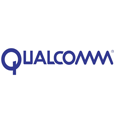 Airtel Nigeria Limited has moved up to the second place in terms of market share on the number of mobile subscribers on its network.
Airtel Nigeria Limited has moved up to the second place in terms of market share on the number of mobile subscribers on its network.
According to data obtained from the website of the Nigerian Communications Commission (NCC), Airtel’s subscriber base hit 26.20 million at the end February 2014, representing 21 per cent of the total number of subscribers in the country during the period under review.
With the increase in its subscriber base, the telecoms company now occupies second place, displacing Globacom (Glo) with 24.5 million subscribers or 20 per cent of market share, to the third position.
MTN still retains its dominant number one position with a subscriber base of 57.2 million, representing 45 per cent of market share, while Etisalat’s subscriber base for the period stood at 18.12 million or 14 per cent of market share.
On internet subscribers, MTN also came tops with 32.81 million data users on its network, followed by Glo with 14.91 million, Airtel occupies the third position with 9.65 million, while Etisalat has 6.11 million internet users.
According to the NCC, teledensity improved from 83.8 per cent in March 2013 to 92 per cent in February 2014.
The latest data also showed that by the end of February, the number of connected lines was 177.23 million, of which 129.02 million were active, as against 161.17 million connected lines and 117.28 million active users as at March 2013.
The installed capacity of all telecoms operators for the period stood at 247.77 million, with connected lines accounting for 177.23 million or 71.54 per cent, meaning there is leeway for 30 per cent growth in the market.
The data further revealed that GSM technology accounted for 97 per cent of market share of phone users, CDMA accounted for 1.86 per cent, while fixed technology accounted for a measly 0.28 per cent.
The data was indicative of the fact that CDMA and fixed lines are being edged out, with GSM taking complete control of telephony in the country.
Industry watchers said Airtel’s subscriber growth might have occurred as a result of the mobile number portability regime, as the operator performed better than Glo in the number of subscribers that moved to its network.
Airtel network received a net gain of 15,186 new subscribers from number porting, while Globacom lost 309 subscribers.
Since the sector’s deregulation 13 years ago, the growth of the telecoms industry has been massive.
Today, the sector is reputed to contribute about nine per cent to the gross domestic product (GDP) of the country.
The revolution in the sector commenced in 2001 when Econet Wireless Nigeria now Airtel, MTN Nigeria and the moribund M-Tel rolled out GSM services.
They were later to be joined by Globacom, which secured a second nation carrier licence in 2003, and Etisalat.
Source: This day









